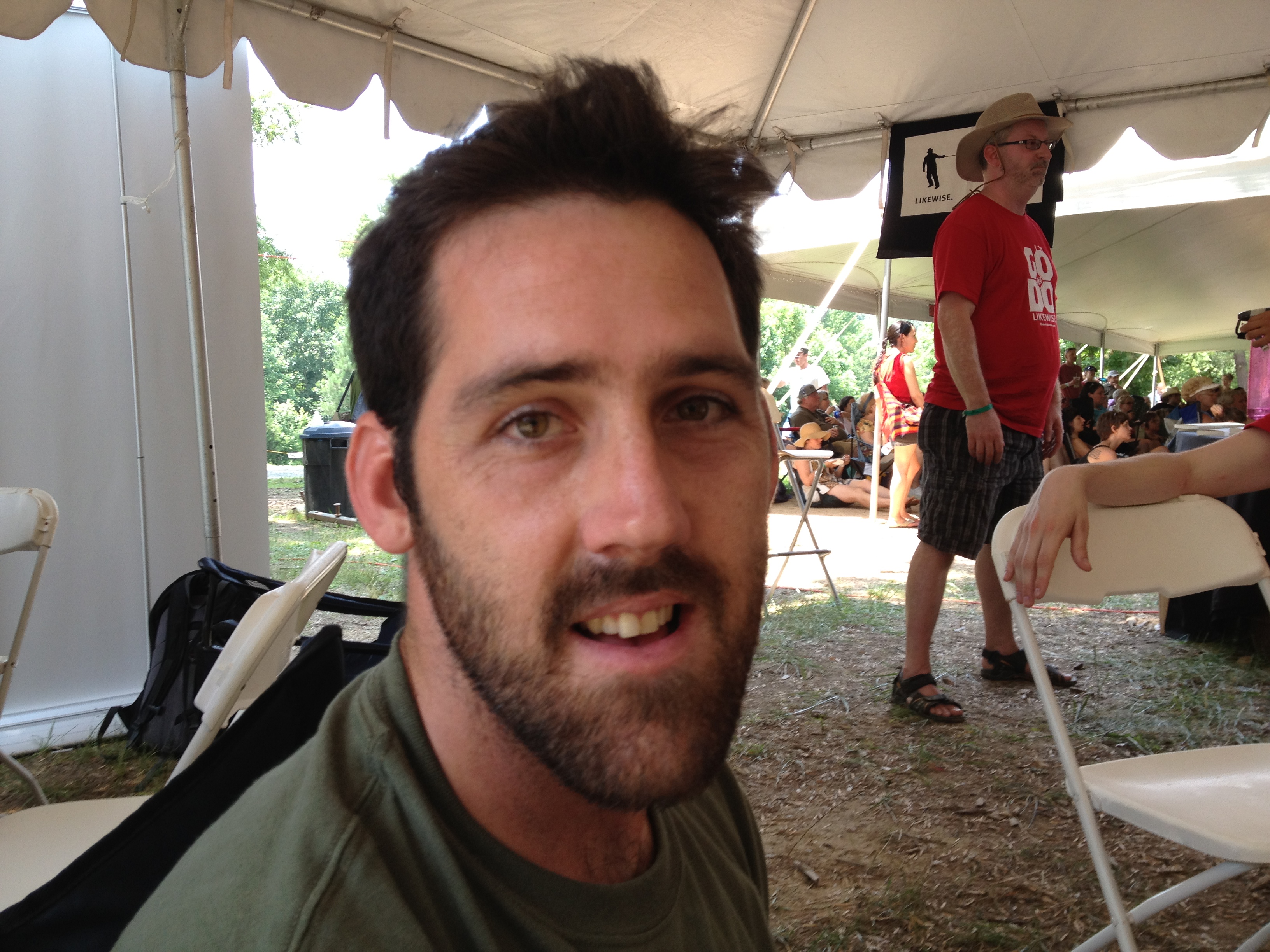
When Logan Mehl-Laituri came home on leave from serving in the War in Iraq, he was greeted at the airport by enthusiastic well-wishers who thanked him for his service. Strangers hugged him, which was awkward, because he’s an introvert by nature. But the larger issue was the moral qualms he had about what he had needed to do in war. “48 hours earlier I was in a firefight in Azul, and now I’m being thanked?” he asked.
Logan worried that he had done some things in wartime that he would not be able to forgive himself for, or forget. “Instead of saying thank you, say ‘welcome home,’” he advises. “Remind them that you love them, and that there’s nothing they can do to change that love. They will be afraid they have done things that will make people not love them anymore.”

In his new book Reborn on the Fourth of July: The Challenge of Faith, Patriotism, and Conscience, which just released from InterVarsity Press’s Likewise imprint, Logan reflects on theology and ethics in wartime—and peacetime. “War is a social moral construct,” he insists. “Like gender, war is not intrinsically human nature. We are created ‘very good.’ Violence is something that we acquire, not something innate to us. If it were innate, why would we feel guilty? Even if violence is just, most people feel remorse.”
Logan took a year off from his studies in the M.T.S. program at Duke Divinity School to write this book, a passionate exploration of war and ethics. I sat down with him at the Wild Goose Festival for a short interview after hearing his talk on “Conscience before War.”
At 30, he comes across with that quiet but fiery intensity that is the apparent birthright of many of the bearded Emergent guys of his generation. Everything about him urges us to reconsider the tidy equation of religion and war, even down to his t-shirt, which reads, “God > U.S.”
Logan enlisted in the Army at the tender age of eighteen, fresh out of high school and with the goal of making money to pay for college. His parents, both teachers, had invested in private schools for several of their kids, so he knew that he was going to have to cover college for himself. It was the year 2000, and war and terrorism did not appear to be on America’s horizon.
But then September 11 happened, and the War in Iraq, in which he served as a bomber. In 2006, he became a Christian. “I would have told you I was a Christian already,” he says. But growing up in Orange County, California, religion was (like many things in the OC) a superficial proposition. After he started dating a woman whose family took their Christian beliefs very seriously, allowing those beliefs to shape their lives and choices, he began to do the same. So he counts 2006 as the date of his official conversion to the faith.
Now he had a problem. If he had been a doctor in the military, or had some other non-violent job, “things may have been different,” he says. “But I couldn’t get past the fact that I was bombing the people Jesus told me to love. From there, a large part of my theological framework came crashing down.”
Logan made the difficult decision to apply for CO (conscientious objector) status, unable to reconcile his deepened understanding of Jesus with what he was doing in Iraq. Later in 2006, he was discharged from the military. The book chronicles his journey and also seeks to reach out to other vets who may be struggling with the horror of what they had to do in wartime. Logan is concerned that an average of seventeen American veterans will commit suicide each day, and hopes that his book might reach out to soldiers and their families.
He also hopes that the church will have ears to hear. “I’d like to think that in hearing my story, other veterans will feel open to speaking their own experiences in their congregations. I hope people will take it upon themselves to share their experiences of war.”




